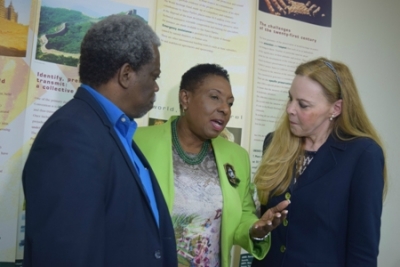The disclosure was made by the Minister of Culture, Gender, Entertainment and Sport and Chairman of the Jamaica National Commission for UNESCO, the Honourable Olivia Grange.
Addressing the first meeting of the new Board of the Jamaica National Commission for UNESCO today (Wednesday), Minister Grange said the funding would be provided through UNESCO’s Participation Programme.
“We’re very delighted that these excellent projects have been selected for funding support by UNESCO. Each project addresses very important development issues and we are eager to see each of them succeed and contribute to national development,” said Minister Grange.
The four projects which will benefit from a total of US$79,000 are:
- ‘Caribbean SIDS Roadmap to Biosphere Nomination’ submitted by the Jamaica National Commission for UNESCO. The project will support the establishment of a new Caribbean Biosphere in the World Network of Biosphere. The project was awarded US $25,000.
- ‘Revitalisation of Mento’ submitted by the Jamaica Cultural Development Commission. Project will create greater awareness and knowledge of Mento particularly among youth. It also aims to increase the number of Mento bands in the island. The project was awarded US $20,000.
- ‘Contemporary Masculinities’ submitted by the Institute of Gender and Development Studies (IGDS). This research project will examine and challenge the structural framework from which privilege is derived in the Caribbean. It will also explore and recommend a concept of Caribbean masculinities, which could contribute to gender equality and gender justice. The project was awarded US $18,000.
- ‘Engaging Youth in UNESCO Related Activities’ submitted by the Jamaica Federation of UNESCO Clubs Centres and Association. This project will seek to strengthen and expand membership and build the capacity of youth to actively contribute to finding solutions to issues affecting them. This project was awarded US$16,000.
Minister Grange indicated that the Commission is now meeting with all fund recipients to ensure that work begins quickly as activities must be completed and all funds disbursed by December 2017.
The UNESCO Participation Programme functions as a vital complement to UNESCO’s regular activities by analysing, evaluating and facilitating the implementation of national, sub-regional, inter-regional and regional projects submitted by Member States and NGOs directly related to the activities of the Organisation.
-END-
 Government of Jamaica
Government of Jamaica
